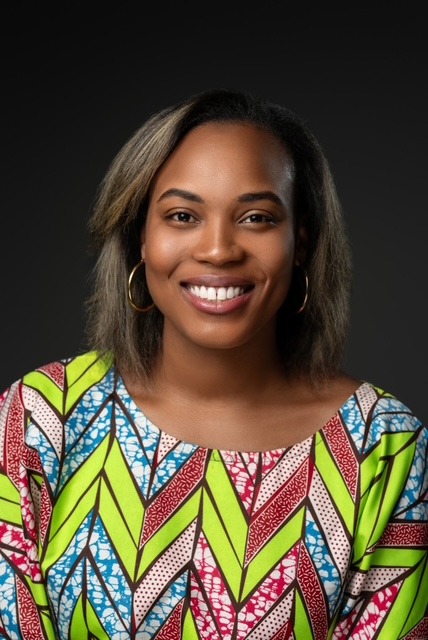By Tracy Chiles McGhee
This article is part of Unerased | Black Women Speak’s December exploration Claiming Our Space: Preserving Our Future.
A recent internet meme revised Chaka Khan and Whitney Houston’s iconic lyrics, “I’m every woman” declaring, “I am NOT every woman. It’s NOT all in me. Anything you want done, baby, do it yourself.”
It’s a reflection of our times—Black women claiming their space, time, and joy in ways that defy centuries of silencing and erasure. This is not merely about physical space but about declaring the right to breathe and to build an abundant future for themselves, their families, and their communities.
Unerased spoke with five powerful Black women from diverse sectors to explore how Black women can claim their space and ensure a thriving future. They remind us that claiming space is not a one-size-fits-all journey. For some, it begins on a yoga mat or in the stillness of meditation. For others, it’s about rewriting narratives passed down through generations or creating digital communities that affirm our existence. Whether through acts of joy, resistance, or nourishment, the common thread is clear: Black women have the power—and the right—to claim their space and build an abundant future.
Here’s what they had to say:
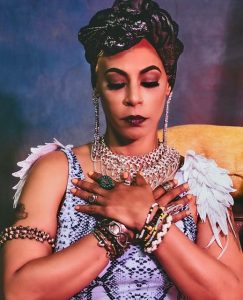 Michelle Blu
Michelle Blu
Michele Blu, Kemetic Yoga Practitioner, Baltimore, Maryland
“Taking up space starts with self-care,” says Michele Blu. “When I prioritize my mind, body, spirit, and soul, I show up fully in every aspect of my life—business, relationships, family, and community.”
Blu’s daily practice begins on her yoga mat, a space she claims as her own for meditation, prayer, and connection with her ancestors. “On the mat, I call out the names of ancient gods and goddesses, feeling their liberating power. This small act of intentional self-care radiates outward. Breathing deeply, I remind myself: breathing is living. Breathing is taking up space.”
For Blu, yoga is a lifestyle. “When I roll up the mat, the real practice begins. I carry with me calmness and clarity, bringing it to my community, workplace, and family. That is how I claim my space—internally and externally.”
 Michelle Petites
Michelle Petites
Michelle Petties, Author and Food Story Coach, Annapolis, Maryland
“Claiming our space isn’t just about physical presence—it’s about emotional and mental freedom to exist fully and authentically,” says Michelle Petties, Author of Leaving Large: Stories of a Food Addict.
Petties’ journey of overcoming food addiction has taught her the importance of rewriting inherited narratives around food and body image. “For decades, Black women have been conditioned to shrink themselves to fit spaces not designed for us. But it’s time to ask: What stories are keeping us from occupying our lives fully? What inherited beliefs are holding us back?”
To claim space, Michelle emphasizes the importance of nourishment—without guilt. “Choose foods that fuel your greatness, not your emptiness. Your worth isn’t measured by your plate or waist size. Rewrite those generational stories that tell you to shrink. Your space is your birthright.”
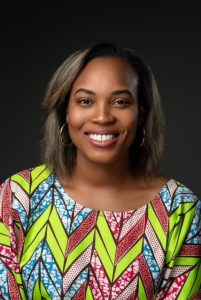 NaaKoshie Mills
NaaKoshie Mills
Naakoshie Mills, Anthropologist and Artist, Baltimore, Maryland
“Black women are creating space in new ways, particularly online,” says Mills, who studies the intersections of technology, identity, and community. In virtual spaces, Black women are reshaping narratives, building kinship, and circulating stories that disrupt racism and dominant ideologies of patriarchy.
“Whether through social media, blogs, or virtual collectives, these spaces introduce counter-narratives that assert Blackness and womanhood as normative in a world that often seeks to erase us.”
Mills believes these digital interventions are crucial where structural violence persists. “The simple act of occupying space—physical or digital—introduces new possibilities for liberation and belonging.”
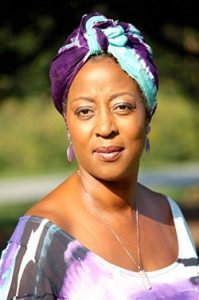 Kimberly A. Collins
Kimberly A. Collins
Kimberly A. Collins, Poet and Educator, Washington, DC
“Claiming our space is both an act of resistance and a responsibility,” says Kimberly A. Collins, founder of SOAR and Author of Choose You! Wednesday Wisdom to Wake Your Soul. She recalls a pivotal moment during her junior year at Spelman College when Professor Gloria Wade Gayles told her class, “Claim your space.”
“Those three words assured us of our worth and the necessity to stand in our purpose,” Collins explains. “If we don’t claim our space, someone else will. That’s why women like Fannie Lou Hamer, Shirley Chisholm, and Harriet Tubman risked their lives—not just for themselves but for all of us.”
Collins emphasizes the ongoing struggle for voting rights and representation as critical ways to claim space today. “The legacy of these women reminds us that we are not bound by the shackles of the past. Claiming space means standing boldly in our purpose and paving the way for those who come after us.”
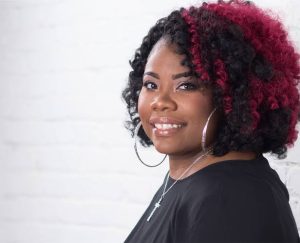 Tracey Michae’l Lewis-Giggetts
Tracey Michae’l Lewis-Giggetts
Tracey Michae’l Lewis-Giggetts, Author and Thought Leader, Philadelphia, Pennsylvania
“It’s incredibly important that Black women reclaim space for joy in this season,” says Tracey Michae’l Lewis-Giggetts, Author of Black Joy Playbook: 30 Days of Intentionally Reclaiming Your Delight.
“Joy is more than a fleeting feeling; it’s a grounding force that sustains us. It exists alongside our rage, grief, and fear. When we make space for joy, it expands us and heals us,” Tracey explains.
Black joy, she says, is distinct because it transforms pain into creativity and innovation. “Our ancestors have shown us how to alchemize pain into something beautiful. Joy is our birthright. We don’t have to earn it—we simply need to locate it in our bodies, call it up, and amplify it in our communities.”
Tracy Chiles McGhee is a Writer and Constituency Engagement Advisor for Unerased | Black Women Speak.

